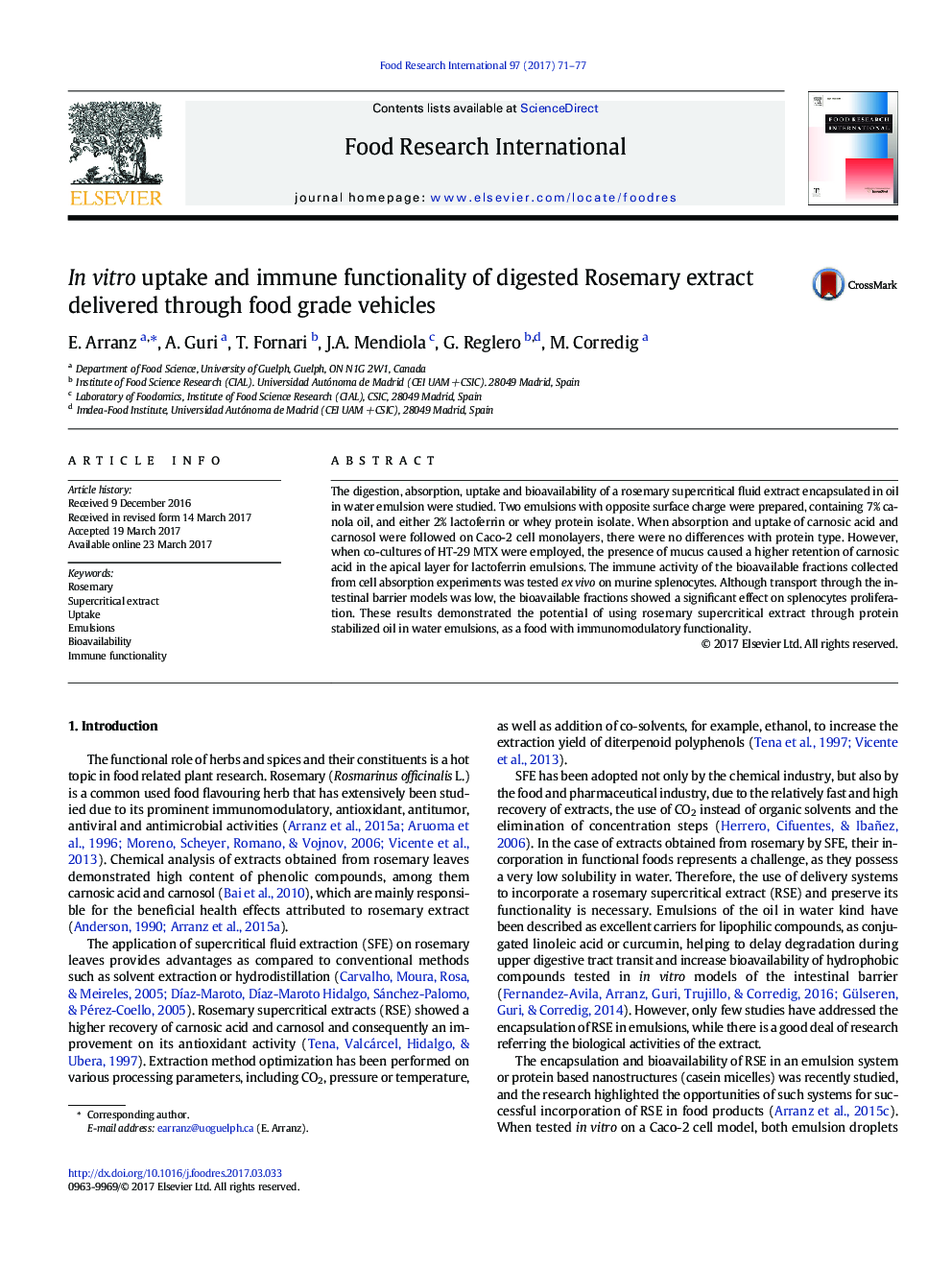| Article ID | Journal | Published Year | Pages | File Type |
|---|---|---|---|---|
| 5768209 | Food Research International | 2017 | 7 Pages |
â¢Emulsions protect carnosic acid degradation during in vitro digestionâ¢Free fatty acid release was not affected by the type of protein at the interfaceâ¢Surface charge of emulsion droplets is an important factor in absorptionâ¢Bioavailable fractions showed immune modulation response
The digestion, absorption, uptake and bioavailability of a rosemary supercritical fluid extract encapsulated in oil in water emulsion were studied. Two emulsions with opposite surface charge were prepared, containing 7% canola oil, and either 2% lactoferrin or whey protein isolate. When absorption and uptake of carnosic acid and carnosol were followed on Caco-2 cell monolayers, there were no differences with protein type. However, when co-cultures of HT-29 MTX were employed, the presence of mucus caused a higher retention of carnosic acid in the apical layer for lactoferrin emulsions. The immune activity of the bioavailable fractions collected from cell absorption experiments was tested ex vivo on murine splenocytes. Although transport through the intestinal barrier models was low, the bioavailable fractions showed a significant effect on splenocytes proliferation. These results demonstrated the potential of using rosemary supercritical extract through protein stabilized oil in water emulsions, as a food with immunomodulatory functionality.
Graphical abstractDownload high-res image (241KB)Download full-size image
